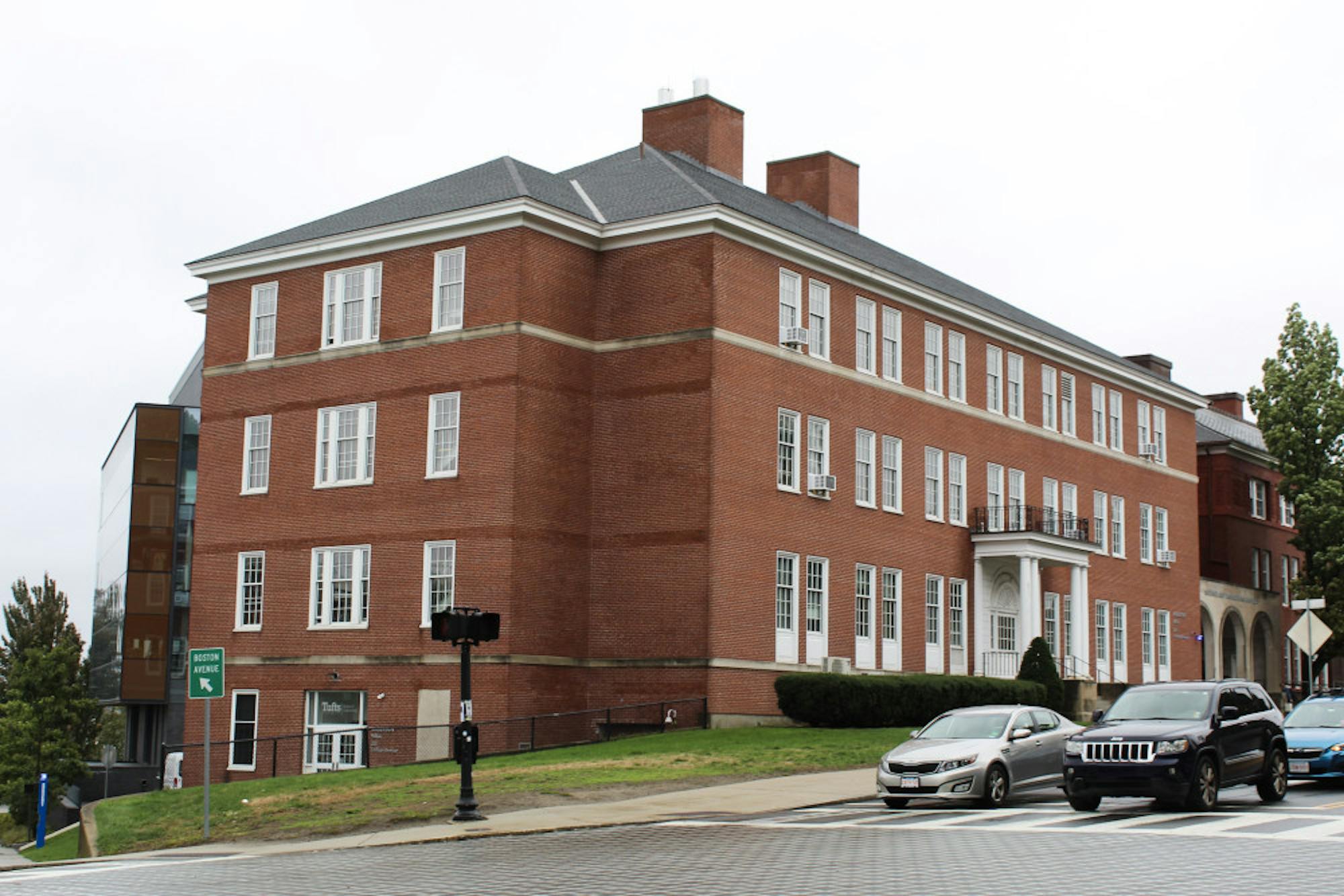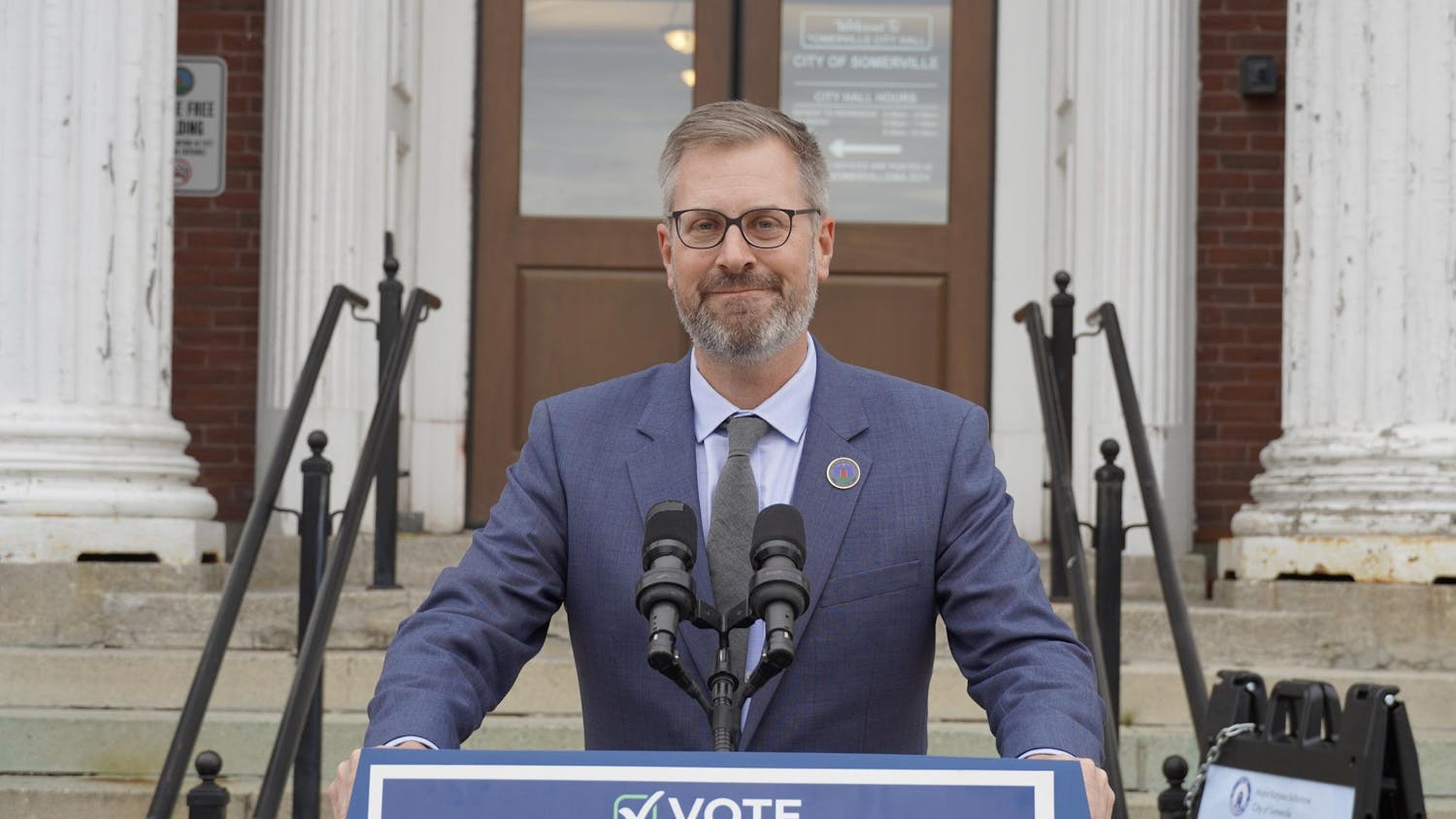Desen Özkan and Chelsea Andrews of Tufts’ Center for Engineering Education and Outreach hosted a discussion on Dec. 2 presenting findings from their ongoing research project “Improving Students’ Sociotechnical Literacy in Engineering.” Özkan is a postdoctoral researcher at the CEEO and the Institute for Research on Learning and Instruction, and Andrews is a research assistant professor.
The project's goals were to make social, economic and political decisions in engineering visible for students as they learn technical skills and to help students “identify assumptions that go into [engineering] work … and [critique] decisions … through a justice lens,” according to Andrews.
Özkan received a Ph.D. in engineering education from Virginia Tech and, in addition to her research on interdisciplinary learning, teaches courses at Tufts’ School of Engineering and School of Arts and Sciences. Andrews has a Ph.D. in engineering education from Tufts and studies how children engage with engineering design.
The researchers discussed the history of engineering education, pointing to two common teaching narratives of technological determinism and technological neutrality — the former narrative posits that technology is a dominant force that shapes societal development, for better or worse, while the latter argues that technology is not inherently good or bad, but the way humans use it can be. In their project, Özkan and Andrews also drew on ideas from W.E.B. DuBois, identifying how the issue of split identity manifests in engineering and pointing out that it is necessary to account for diverse identities in all areas of engineering.
For the first year of their research project, Özkan and Andrews added “sociotechnical content” to the curriculum of two of the five sections of ES2: Introduction to Computing in Engineering, a class that previously had a reputation as a “purely technical” first-year computing course, according to Andrews. The new content includes readings and discussions meant to anchor students’ work in real-world problems. Students in the course were asked to analyze and discuss real-world data, and complete a final project focused on a societal and computing theme, where they were encouraged to reflect on equity and impact in engineering. They also added equity learning assistants — all of whom are students who have fulfilled the first-year engineering requirements — to the course to help facilitate discussions about the societal impacts of engineering.
In addition to Özkan and Andrews’ work designing the modified ES2 course, Associate Dean of Student Diversity, Inclusion, and Success Ellise LaMotte provided institutional support for the project, and research assistant professors Ethan Danahy and Jennifer Cross teach sections of the course and helped design the curriculum alongside assistant professor Deborah Sunter.
Andrews described the design of the ongoing research study.
“We’re using a qualitative case study approach because we want to know more than just correlation, so we’re looking at, ‘How and why does this impact students and what are they thinking during the class?’ Andrews said. “‘How are they experiencing this with all of their identities — all of those intersectional identities in particular?’ … We want to know the process through which all of these things are affecting each other.”
At the end of the course, the equity learning assistants interviewed the first-year students about their experiences in ES2. Based on the responses, many students felt that contextualizing their work with readings and discussions about equity and real-world impact helped them to zoom out and remember the bigger picture when focusing on minute details in their coding.
Students also identified how discussions and reflections affected their sense of belonging. One student shared that they felt comforted by the changes the researchers put in place, particularly as a first-generation student of color.
Another student in the class felt that some of the discussions put them in a vulnerable and uncomfortable position as the only African American student in some of the discussion groups about diversity, equity, inclusion and justice.
The researchers described their main findings from the interviews, noting that no two students had the same perspective on the modified course. They also emphasized the importance of “center[ing] minoritized students’ subjective experiences” and rejecting the “majority-fits-all model of education”.
The researchers received “a lot less pushback than [they] expected” on their study, Andrews said. However, adapting ES2 did not come without its challenges: For instance, providing timely feedback to students proved difficult, as instructors and TAs were unsure how to grade sociotechnical coursework such as discussion participation, and what written feedback to offer.
The researchers then opened the floor up for questions, during which professors and students asked about time requirements for the added sociotechnical curriculum, strategies for allowing safe, respectful discussions about sensitive topics, and the utility of sociotechnical perspectives in engineering careers.






